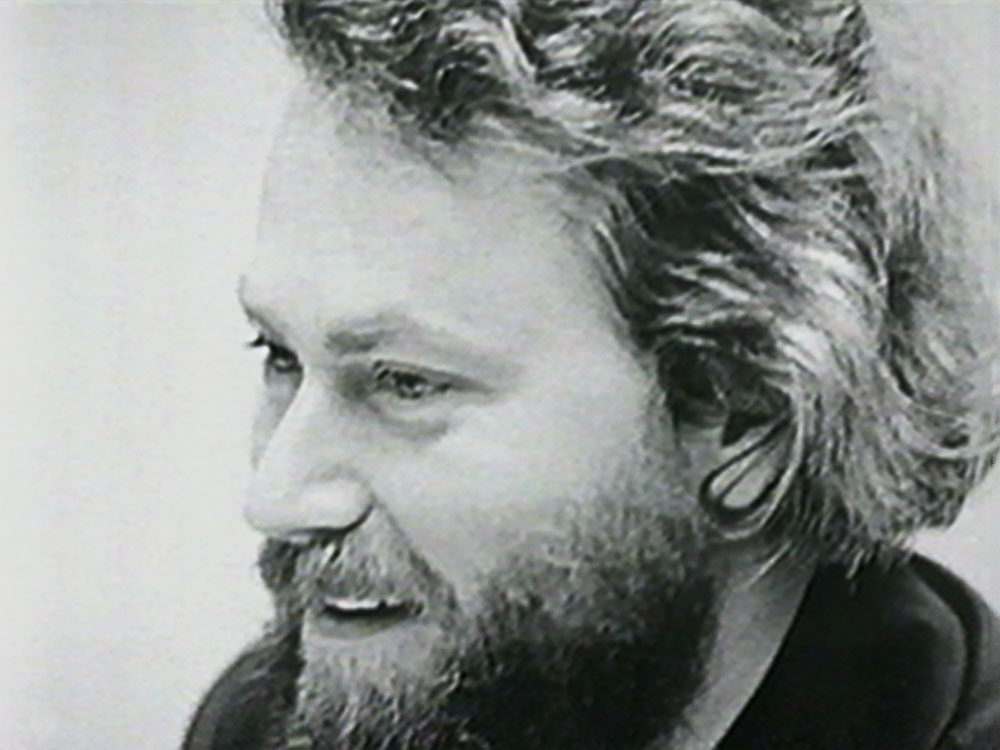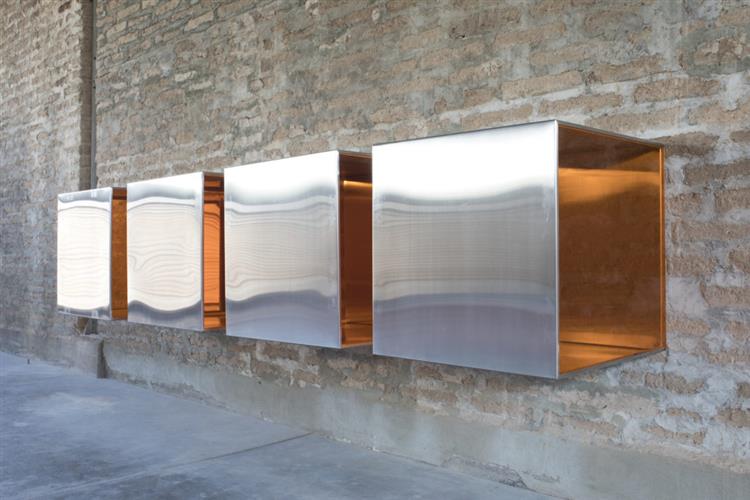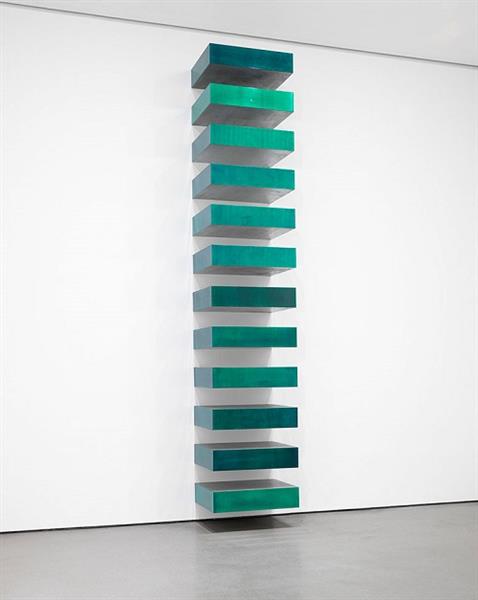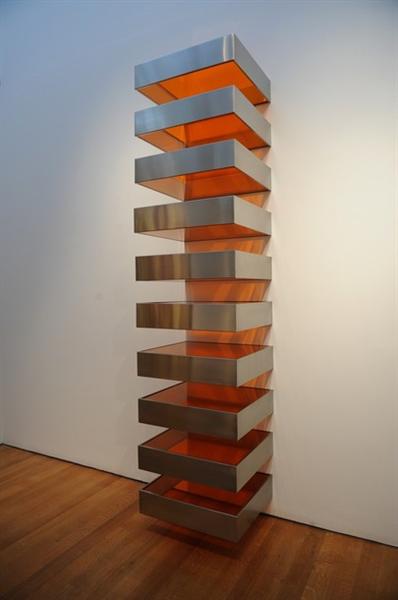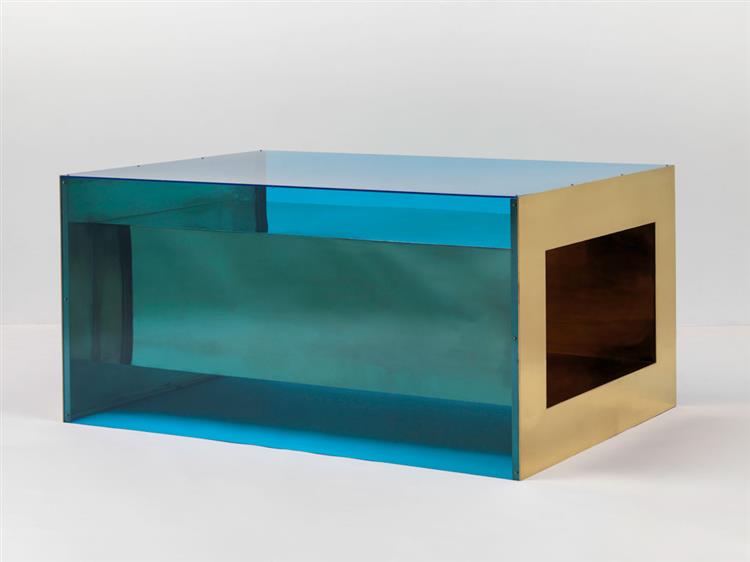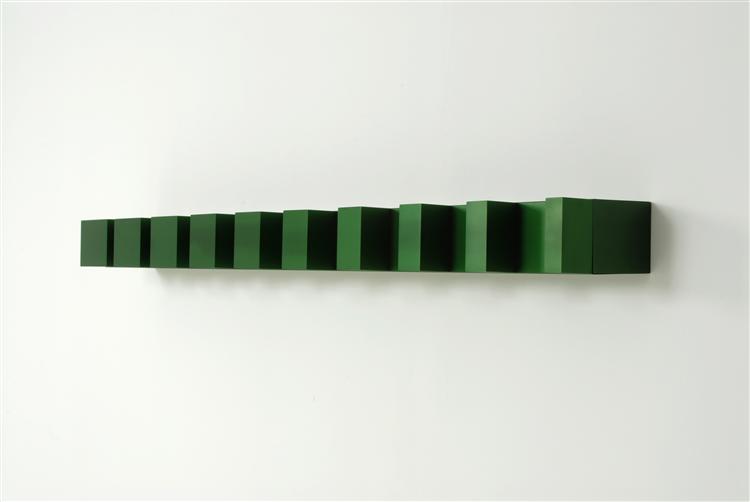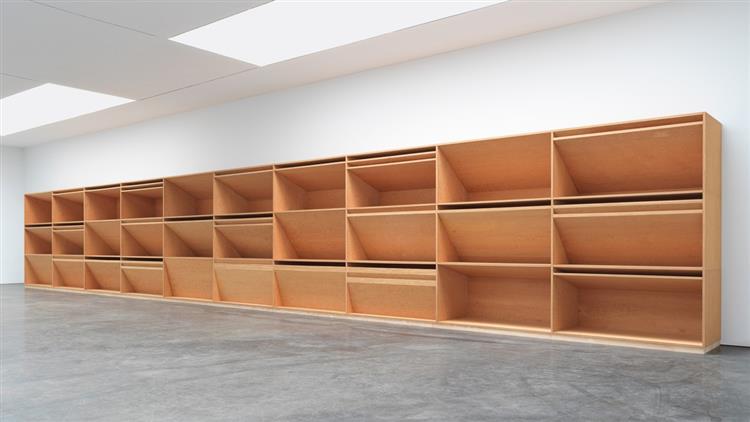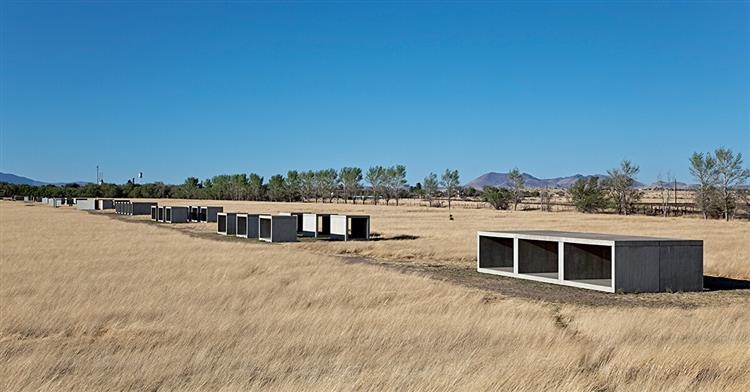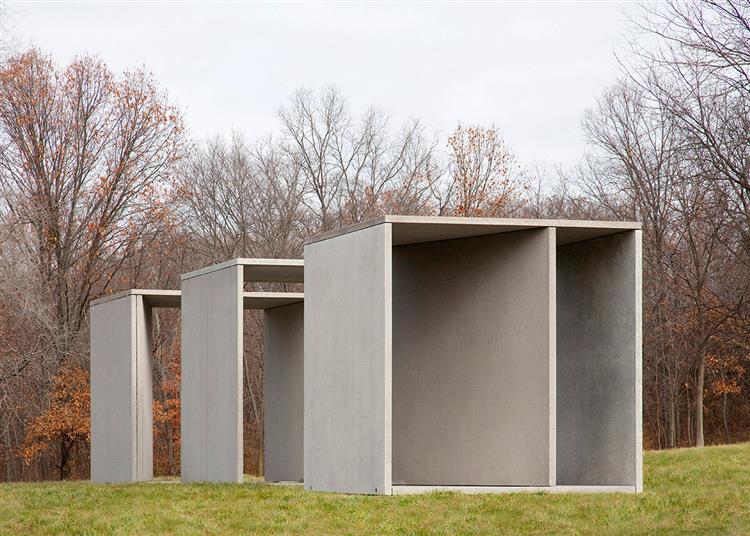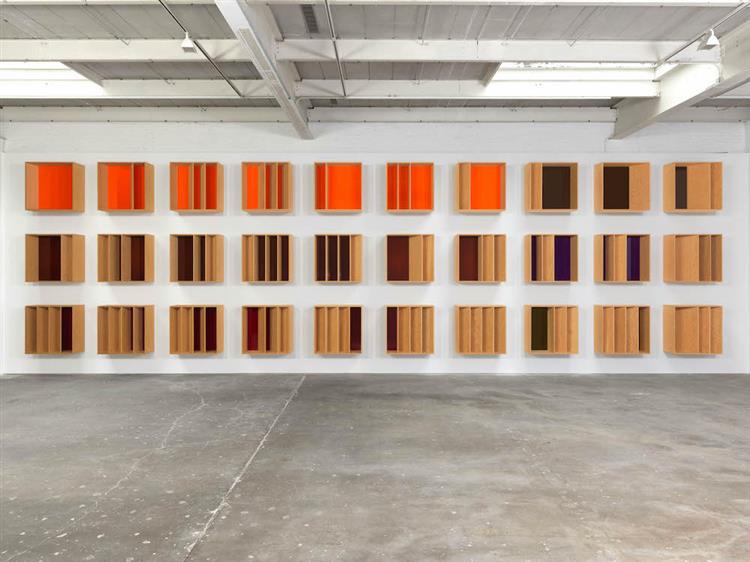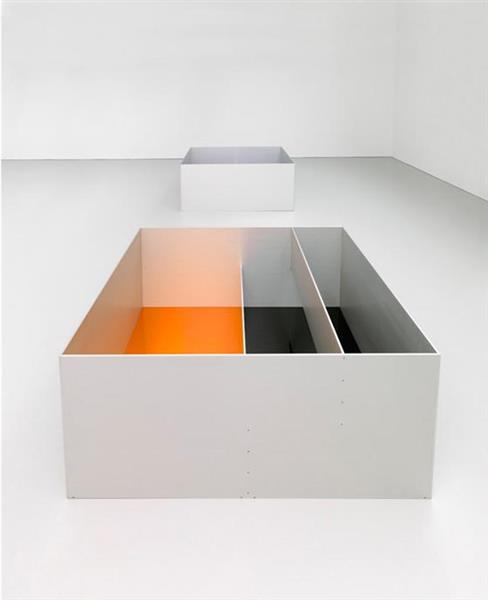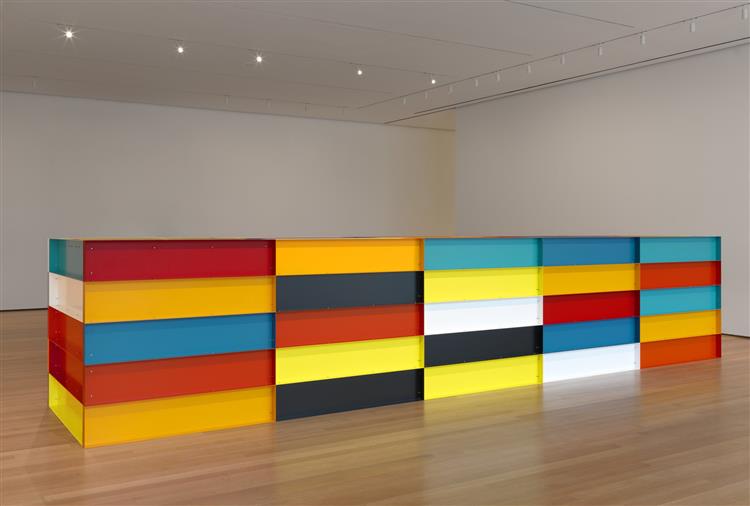If you’ve ever wandered through a modern art museum and found yourself mesmerized by clean lines, geometric forms, and an almost spiritual sense of simplicity, you’ve likely encountered the work of Donald Judd. Known as a pioneer of Minimalism, Judd’s art continues to captivate audiences with its unembellished elegance and intellectual rigor. Let’s dive into the life and legacy of this minimalist maestro.
1. From Painter to Sculptor: Judd’s Artistic Transformation
Did you know that Donald Judd started his artistic journey as a painter? Born in 1928 in Excelsior Springs, Missouri, Judd initially explored abstract painting. However, he soon found the medium too restrictive and turned to sculpture, changing the course of art history forever.
2. The Birth of Minimalism: Judd’s Revolutionary Vision
Judd’s work is synonymous with Minimalism, a movement that emerged in the 1960s. He believed that art should be stripped of personal expression and unnecessary decoration. His sculptures, characterized by clean lines and geometric forms, embody the “less is more” philosophy.
3. Industrial Materials: Breaking the Mold
Forget marble and bronze—Judd was all about industrial materials. He used stainless steel, Plexiglas, concrete, and plywood to create his iconic pieces. These materials allowed him to explore space and volume in innovative ways.
“It isn’t necessary for a work to have a lot of things to look at, to compare, to analyze one by one, to contemplate. The thing as a whole, its quality whole, is what is interesting. The main things are alone and are more intense, clear, and powerful.“
— Donald Judd
4. The Iconic “Stacks”
One of Judd’s most famous series is the “stacks.” These sculptures feature identical units arranged vertically, creating a sense of rhythm and harmony. Each piece challenges the viewer to appreciate the beauty of simplicity and repetition.
“Design has to work. Art does not.”
— Donald Judd
5. Marfa, Texas: An Artistic Oasis
In the 1970s, Judd discovered Marfa, Texas, a small desert town that became his artistic utopia. He bought decommissioned army buildings and transformed them into spaces to display his work. Today, Marfa is a pilgrimage site for art lovers worldwide.
“Actual space is intrinsically more powerful and specific than paint on a flat surface.”
— Donald Judd
6. The Chinati Foundation: Judd’s Legacy
Judd established the Chinati Foundation in Marfa to showcase large-scale works by himself and other artists. The foundation reflects Judd’s belief in the integration of art, architecture, and landscape, offering an immersive experience unlike any other.
7. Judd’s Theoretical Writings
Judd wasn’t just a visual artist; he was also a prolific writer. His essays on art theory are still studied today, offering insights into his minimalist philosophy and his views on the role of art in society. >Download the Finding Aid
8. Influence on Contemporary Art
Judd’s impact on contemporary art is immeasurable. His insistence on the autonomy of the art object has inspired countless artists to explore new forms and materials, breaking free from traditional constraints.
“If someone says it’s art, it’s art.”
— Donald Judd
9. Architectural Ambitions
Judd’s interest in space extended beyond sculpture to architecture. He designed several buildings in Marfa and New York, emphasizing functionality and simplicity. His architectural projects are testaments to his holistic approach to art and design.
“You’re getting rid of the things that people used to think were essential to art. But that reduction is only incidental. I object to the whole reduction idea…if my work is reductionist it’s because it doesn’t have the elements that people thought should be there. But it has other elements I like.”
— Donald Judd
10. The Art Market: Judd’s Works in Demand
Judd’s works are highly sought after in the art market, with pieces fetching millions at auction. Collectors and museums worldwide vie for his minimalist masterpieces, ensuring his legacy endures.
Dive Deeper into Judd’s World
Feeling inspired by the minimalist genius of Donald Judd? Plan a trip to Marfa, Texas, to experience his work in its intended setting at the Chinati Foundation. Subscribe for more fascinating insights into the world of modern art and to stay updated on the latest exhibitions and art market trends.
Donald Judd’s art challenges us to see the beauty in simplicity and the power of space. His legacy continues to inspire and captivate, proving that sometimes, less truly is more.
Looking to explore more art genres? Head over to JoeLatimer.com for a multidisciplinary, visually stunning experience. ☮️❤️🎨
Enjoy this blog? Please help spread the word via:


